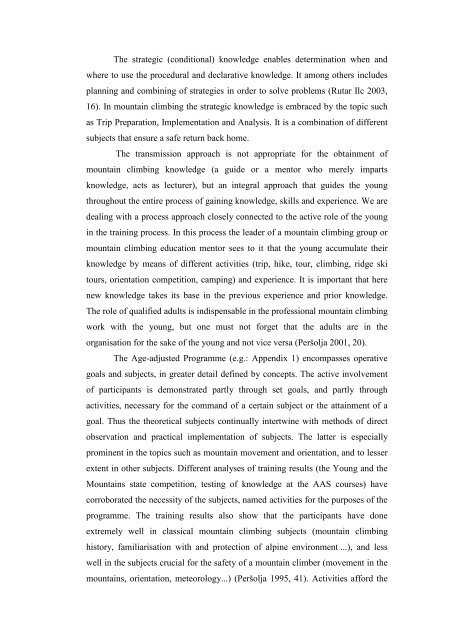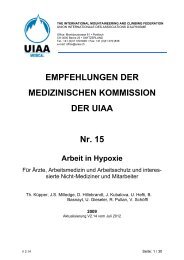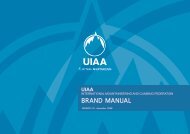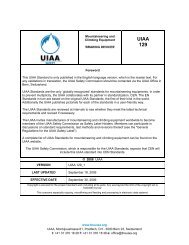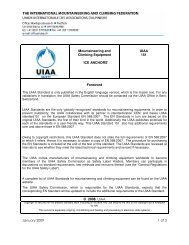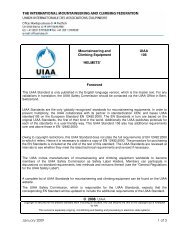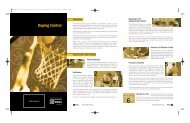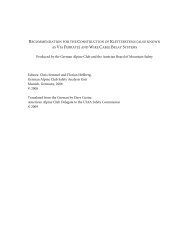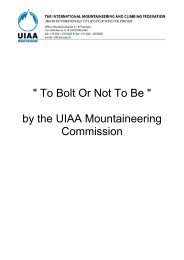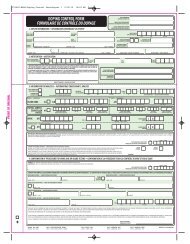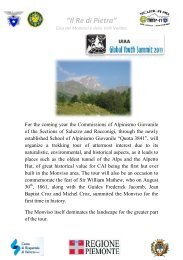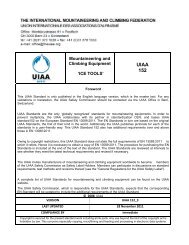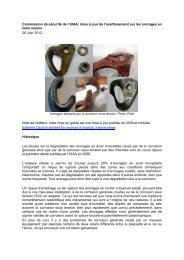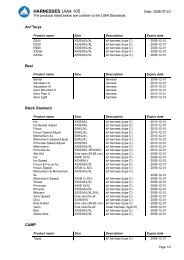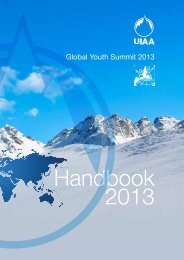AGE-ADJUSTED PROGRAMME OF MOU TAI CLIMBI G ... - UIAA
AGE-ADJUSTED PROGRAMME OF MOU TAI CLIMBI G ... - UIAA
AGE-ADJUSTED PROGRAMME OF MOU TAI CLIMBI G ... - UIAA
You also want an ePaper? Increase the reach of your titles
YUMPU automatically turns print PDFs into web optimized ePapers that Google loves.
The strategic (conditional) knowledge enables determination when and<br />
where to use the procedural and declarative knowledge. It among others includes<br />
planning and combining of strategies in order to solve problems (Rutar Ilc 2003,<br />
16). In mountain climbing the strategic knowledge is embraced by the topic such<br />
as Trip Preparation, Implementation and Analysis. It is a combination of different<br />
subjects that ensure a safe return back home.<br />
The transmission approach is not appropriate for the obtainment of<br />
mountain climbing knowledge (a guide or a mentor who merely imparts<br />
knowledge, acts as lecturer), but an integral approach that guides the young<br />
throughout the entire process of gaining knowledge, skills and experience. We are<br />
dealing with a process approach closely connected to the active role of the young<br />
in the training process. In this process the leader of a mountain climbing group or<br />
mountain climbing education mentor sees to it that the young accumulate their<br />
knowledge by means of different activities (trip, hike, tour, climbing, ridge ski<br />
tours, orientation competition, camping) and experience. It is important that here<br />
new knowledge takes its base in the previous experience and prior knowledge.<br />
The role of qualified adults is indispensable in the professional mountain climbing<br />
work with the young, but one must not forget that the adults are in the<br />
organisation for the sake of the young and not vice versa (Peršolja 2001, 20).<br />
The Age-adjusted Programme (e.g.: Appendix 1) encompasses operative<br />
goals and subjects, in greater detail defined by concepts. The active involvement<br />
of participants is demonstrated partly through set goals, and partly through<br />
activities, necessary for the command of a certain subject or the attainment of a<br />
goal. Thus the theoretical subjects continually intertwine with methods of direct<br />
observation and practical implementation of subjects. The latter is especially<br />
prominent in the topics such as mountain movement and orientation, and to lesser<br />
extent in other subjects. Different analyses of training results (the Young and the<br />
Mountains state competition, testing of knowledge at the AAS courses) have<br />
corroborated the necessity of the subjects, named activities for the purposes of the<br />
programme. The training results also show that the participants have done<br />
extremely well in classical mountain climbing subjects (mountain climbing<br />
history, familiarisation with and protection of alpine environment ...), and less<br />
well in the subjects crucial for the safety of a mountain climber (movement in the<br />
mountains, orientation, meteorology...) (Peršolja 1995, 41). Activities afford the


